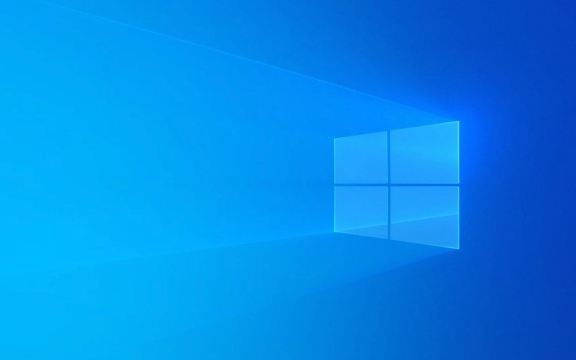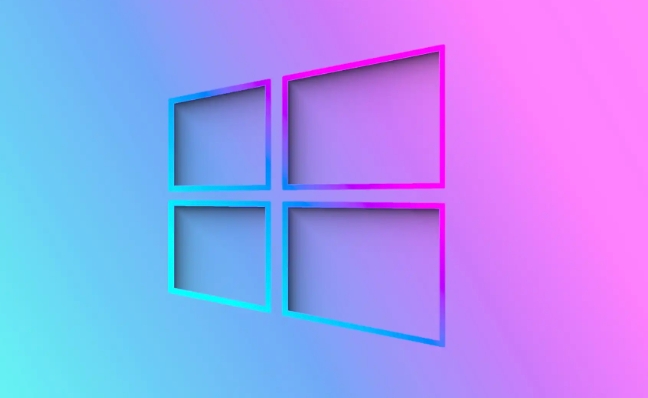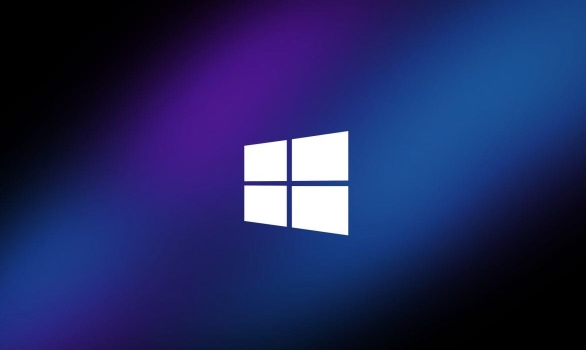Configure Windows Update for Business policies in Intune or Group Policy by setting update rings, deferring quality and feature updates, and assigning policies to device groups, always testing first on a pilot group. 2. Use update rings—Pilot, Broad Deployment, and Lagging—to stagger rollouts and reduce risk by validating updates progressively. 3. Monitor compliance and update status via Intune’s Windows Update Compliance reports or Windows Event Logs and PowerShell on devices, and set up alerts for failures. 4. Schedule updates using Active Hours, maintenance windows, and reboot controls to minimize user disruption, allowing postponement with grace periods. Key tips include avoiding maximum deferral to reduce security risks, regularly reviewing policies, using dynamic Azure AD groups for targeting, and balancing security, stability, and productivity by starting small, deferring wisely, monitoring closely, and scaling gradually.

Windows Update for Business (WUfB) is a set of tools in Microsoft Endpoint Manager (Intune) and Group Policy that helps organizations manage updates for Windows 10 and Windows 11 devices without needing a full WSUS or Configuration Manager setup. It gives you more control over when and how updates are delivered, reducing downtime and improving security.

Here’s how to use Windows Update for Business policies effectively:
1. Set Up Update Policies via Intune or Group Policy
You can configure WUfB using either Microsoft Intune (cloud-based) or Group Policy (on-premises). Most modern organizations use Intune for better scalability and integration with other cloud services.

In Microsoft Intune:
- Sign in to the Microsoft Endpoint Manager admin center.
- Go to Devices > Windows > Windows Update for Business.
- Click Create Policy, choose the profile type (e.g., All Windows 10 and later), and name it.
- Under Update settings, configure:
- Update ring: Choose how devices receive updates (e.g., Insider, Preview, Broad, etc.).
- Defer quality updates: Delay non-security updates by up to 30 days.
- Defer feature updates: Delay major OS upgrades by up to 365 days.
- Pause updates: Temporarily stop updates for up to 35 days.
- Assign the policy to device groups (e.g., Pilot group first, then production).
Using Group Policy (on-prem):
- Open Group Policy Management Console (GPMC).
- Edit or create a GPO linked to your target OUs.
- Navigate to:
Computer Configuration > Administrative Templates > Windows Components > Windows Update > Windows Update for Business - Configure settings like:
- "Defer Quality Updates" – set deferral days.
- "Defer Feature Updates" – set deferral period.
- "Flight Ring" – control update rollout timing.
- Run
gpupdate /forceon test machines to apply.
? Best practice: Always test policies on a small pilot group before rolling out company-wide.
2. Use Update Rings to Stagger Rollouts
WUfB lets you define update rings to control the pace of deployment. This reduces risk by catching issues early.

- Pilot Ring (Early Adopters): Get updates shortly after release. Use for testing.
- Broad Deployment Ring: Receive updates after a delay (e.g., 14–30 days).
- Lagging Ring: Highly restricted; only updated after thorough validation.
In Intune, you create separate policies for each ring and assign them to different Azure AD groups based on department, device type, or user role.
3. Monitor Compliance and Update Status
After deploying policies, monitor how devices are responding.
In Intune:
- Go to Devices > Monitor > Windows Update Compliance.
- View reports showing:
- Number of devices pending updates.
- Devices with failed updates.
- Feature and quality update compliance.
- Set up alerts for update failures or non-compliance.
Using Windows Event Logs (on devices):
- Check
Event Viewer > Applications > Microsoft > Windows > WindowsUpdateClientfor errors. - Use PowerShell:
Get-WindowsUpdateLog
to generate a detailed update log.
4. Combine with Maintenance Windows and Reboot Controls
Avoid disrupting users by scheduling updates during off-hours.
- In Intune policies, set Active Hours (e.g., 8 AM – 8 PM) so reboots don’t happen during work.
- Use Maintenance Windows in Configuration Manager (if used alongside).
- Enable Reboot reminders and grace periods (e.g., allow users to postpone 1–3 reboots).
Key Tips:
- ?? Never defer both feature and quality updates to maximum values—this increases security risk.
- ? Regularly review and update your policies as new Windows versions are released.
- ? Use dynamic Azure AD groups based on device tags or OS version for easier targeting.
Using Windows Update for Business well means balancing security, stability, and user productivity. With proper policy design and monitoring, you can automate updates confidently across your fleet.
Basically: start small, defer wisely, monitor closely, and scale gradually.
The above is the detailed content of How to use Windows Update for Business policies. For more information, please follow other related articles on the PHP Chinese website!

Hot AI Tools

Undress AI Tool
Undress images for free

Undresser.AI Undress
AI-powered app for creating realistic nude photos

AI Clothes Remover
Online AI tool for removing clothes from photos.

Clothoff.io
AI clothes remover

Video Face Swap
Swap faces in any video effortlessly with our completely free AI face swap tool!

Hot Article

Hot Tools

Notepad++7.3.1
Easy-to-use and free code editor

SublimeText3 Chinese version
Chinese version, very easy to use

Zend Studio 13.0.1
Powerful PHP integrated development environment

Dreamweaver CS6
Visual web development tools

SublimeText3 Mac version
God-level code editing software (SublimeText3)
 How to Change Font Color on Desktop Icons (Windows 11)
Jul 07, 2025 pm 12:07 PM
How to Change Font Color on Desktop Icons (Windows 11)
Jul 07, 2025 pm 12:07 PM
If you're having trouble reading your desktop icons' text or simply want to personalize your desktop look, you may be looking for a way to change the font color on desktop icons in Windows 11. Unfortunately, Windows 11 doesn't offer an easy built-in
 Fixed Windows 11 Google Chrome not opening
Jul 08, 2025 pm 02:36 PM
Fixed Windows 11 Google Chrome not opening
Jul 08, 2025 pm 02:36 PM
Fixed Windows 11 Google Chrome not opening Google Chrome is the most popular browser right now, but even it sometimes requires help to open on Windows. Then follow the on-screen instructions to complete the process. After completing the above steps, launch Google Chrome again to see if it works properly now. 5. Delete Chrome User Profile If you are still having problems, it may be time to delete Chrome User Profile. This will delete all your personal information, so be sure to back up all relevant data. Typically, you delete the Chrome user profile through the browser itself. But given that you can't open it, here's another way: Turn on Windo
 How to fix second monitor not detected in Windows?
Jul 12, 2025 am 02:27 AM
How to fix second monitor not detected in Windows?
Jul 12, 2025 am 02:27 AM
When Windows cannot detect a second monitor, first check whether the physical connection is normal, including power supply, cable plug-in and interface compatibility, and try to replace the cable or adapter; secondly, update or reinstall the graphics card driver through the Device Manager, and roll back the driver version if necessary; then manually click "Detection" in the display settings to identify the monitor to confirm whether it is correctly identified by the system; finally check whether the monitor input source is switched to the corresponding interface, and confirm whether the graphics card output port connected to the cable is correct. Following the above steps to check in turn, most dual-screen recognition problems can usually be solved.
 Want to Build an Everyday Work Desktop? Get a Mini PC Instead
Jul 08, 2025 am 06:03 AM
Want to Build an Everyday Work Desktop? Get a Mini PC Instead
Jul 08, 2025 am 06:03 AM
Mini PCs have undergone
 Fixed the failure to upload files in Windows Google Chrome
Jul 08, 2025 pm 02:33 PM
Fixed the failure to upload files in Windows Google Chrome
Jul 08, 2025 pm 02:33 PM
Have problems uploading files in Google Chrome? This may be annoying, right? Whether you are attaching documents to emails, sharing images on social media, or submitting important files for work or school, a smooth file upload process is crucial. So, it can be frustrating if your file uploads continue to fail in Chrome on Windows PC. If you're not ready to give up your favorite browser, here are some tips for fixes that can't upload files on Windows Google Chrome 1. Start with Universal Repair Before we learn about any advanced troubleshooting tips, it's best to try some of the basic solutions mentioned below. Troubleshooting Internet connection issues: Internet connection
 How to clear the print queue in Windows?
Jul 11, 2025 am 02:19 AM
How to clear the print queue in Windows?
Jul 11, 2025 am 02:19 AM
When encountering the problem of printing task stuck, clearing the print queue and restarting the PrintSpooler service is an effective solution. First, open the "Device and Printer" interface to find the corresponding printer, right-click the task and select "Cancel" to clear a single task, or click "Cancel all documents" to clear the queue at one time; if the queue is inaccessible, press Win R to enter services.msc to open the service list, find "PrintSpooler" and stop it before starting the service. If necessary, you can manually delete the residual files under the C:\Windows\System32\spool\PRINTERS path to completely solve the problem.
 How to run Command Prompt as an administrator in Windows 10?
Jul 05, 2025 am 02:31 AM
How to run Command Prompt as an administrator in Windows 10?
Jul 05, 2025 am 02:31 AM
To run command prompts as administrator, the most direct way is to search through the Start menu and right-click "Run as administrator"; secondly, use the Win X shortcut menu to select "Command Prompt (Administrator)" or "Windows Terminal (Administrator)"; you can also open the run window through Win R and enter cmd and press Ctrl Shift Enter to force running as administrator; in addition, you can set shortcut properties to achieve automatic running as administrator. All the above methods require administrator permission and confirmation through UAC. Pay attention to security risks during operation.







